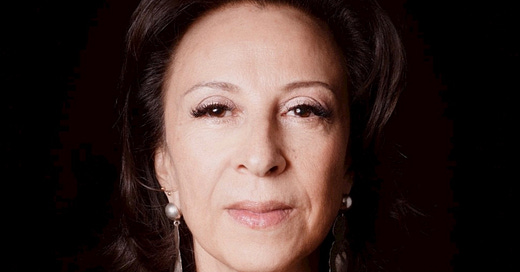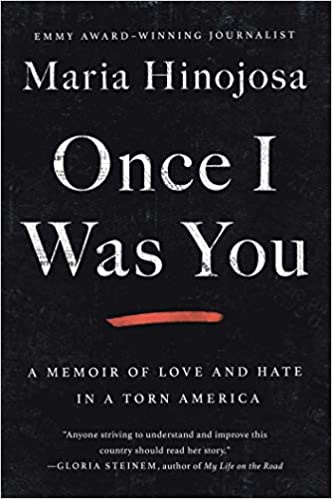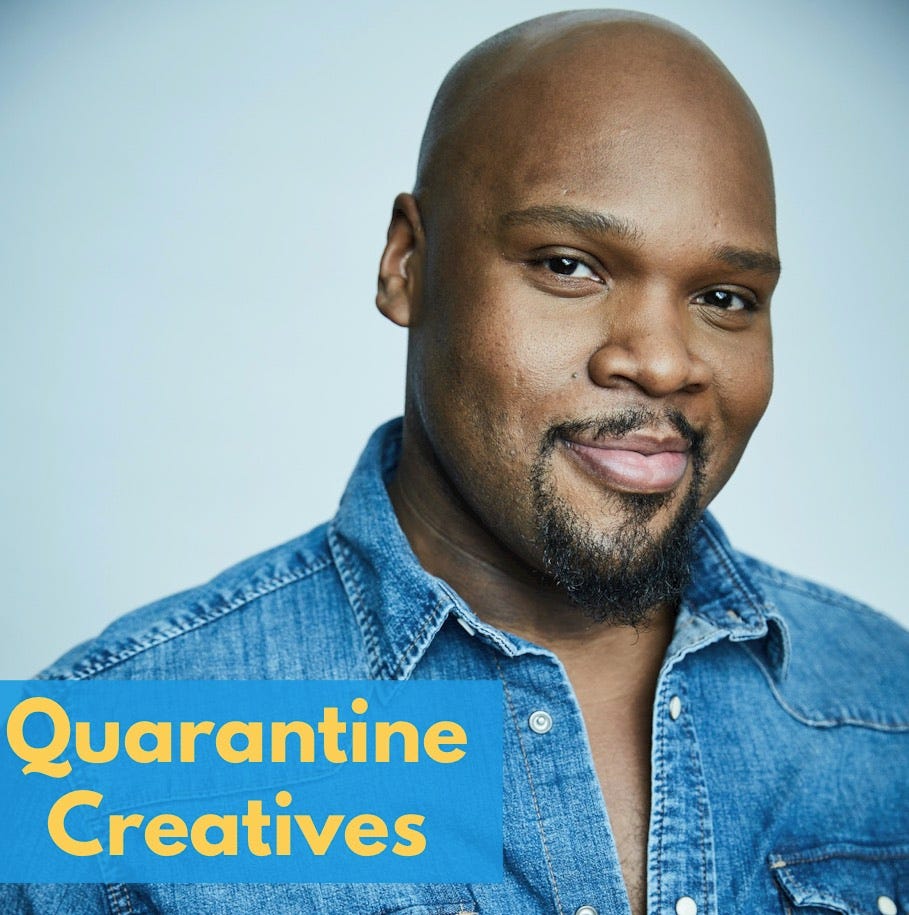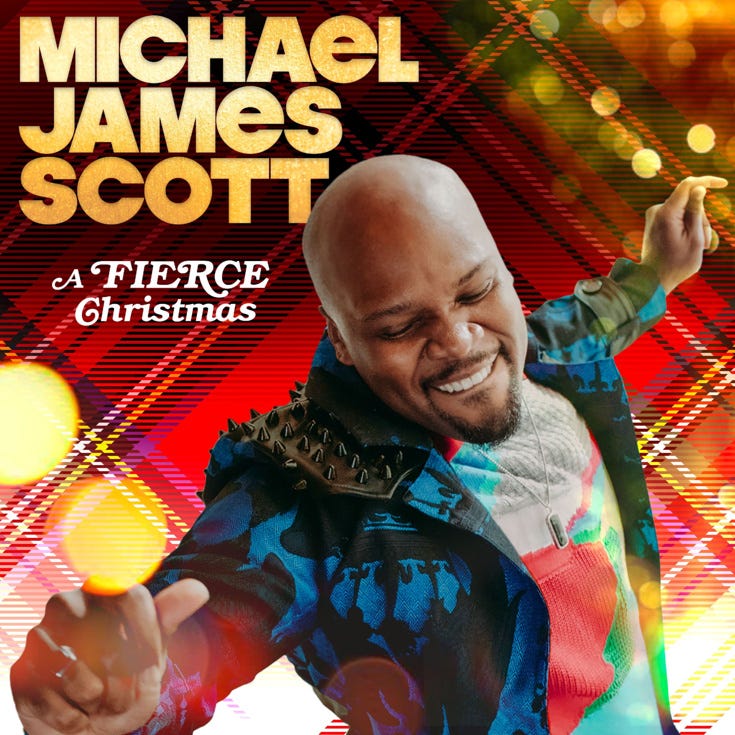Welcome to the Quarantine Creatives newsletter, a companion to my podcast of the same name. To have this newsletter delivered to your inbox every Sunday, click below to subscribe for free:
I had two very interesting and very different interviews last week, which I share below. First, though, some bigger thoughts.
Expanding Our Circles

This week, I stumbled on a Twitter thread from freelance writer Bizzy Coy about how hiring often happens. You can click the tweet above to read the full thread, but to summarize her thoughts, most companies are not looking to hire the “best” person for the job, they’re often looking to hire the person that can accomplish the job with some level of competence but is easy to find. She uses freelance writing as an example, but I think this extends to most other jobs in many industries, whether freelance, contract, or full time.
Bizzy’s point is that to truly find the most qualified candidate, it can mean sifting through dozens of resumes, setting up interviews with strangers, and calling references. What often ends up happening instead is a company hires somebody they’ve hired before, or they go with the referral of a friend or colleague. This approach makes sense, as it allows open positions to be filled quickly, and it allows the person doing the hiring to focus on other job duties.
Bizzy was being realistic in making her point, using it to stress the importance of networking and delivering your best work for clients with the hope of repeat business. Pragmatically speaking, I think this is very good career advice. I even passed it on to a college student I spoke with this past week.
However, I think that this approach can have the unintended consequence of making it harder for skilled workers to break into a particular business, or perhaps even more egregious, homogenizing your workforce. This theme came up in different ways in both interviews last week (more on that below).
This pandemic and the unrest that happened in the wake of the death of George Floyd have given us a chance to pause, refocus, and look to the future. I know that I am more aware of my own blindspots when it comes to diversity, equity, and inclusion, and I hope that we are all taking some time to reexamine our biases. It starts by expanding our circles and looking beyond the status quo. It means diversifying the media we consume (both traditional and social), listening to people’s stories with empathy, and actively taking steps to acknowledge our own biases and to work against them. These themes have come up many times since the podcast launched, and it seems that the most successful and creative people recognize the need to diversify.
I truly hope that when we’re on the other side of this pandemic, we can continue moving towards a more equal and fair society that accepts and embraces voices from all walks of life.
Support Quarantine Creatives
If you enjoy reading this newsletter or listening to my podcast, please consider using my Amazon shopping link when you do some of your holiday gift giving. Amazon will work in exactly the same way as it usually does and the cost to you doesn’t change, but by clicking on this link before you shop, a portion of your sale goes to help support Quarantine Creatives. Thank you!
Episode 59- Maria Hinojosa
On Monday, I had a really memorable and personal conversation with journalist Maria Hinojosa. Maria's journalism career has included working for NPR, PBS, CBS, CNN, hosting NPR's Latino USA for more than two decades, and cohosting the podcast In The Thick. Maria is based in Harlem, and both she and her husband, German Pérez, contracted COVID-19 in March, during the early days of the pandemic. She described what her experience with the virus was like:
“It felt very, very lonely. My case was ‘mild.’ It was like 30 days with a fever, a mild fever. The highest it got for me was just over 100, but I’m a small person, so that really felt like a lot. And the body aches and pains were just voracious. I mean, I couldn’t get out of bed. And that was mild. I always was able to breathe, and so was my husband. His symptoms ended up being completely digestive. We just didn’t know what the entirety of this symptomatology was. Like I said, for me it was lonely, it was scary.”
As COVID surges out of control over so much of the country, Maria shared how the virus is affecting her community and the advice that she gives to others about the severity of this moment:
“In the last month, I’ve had more people infected with COVID in my New York City community than at the height of COVID in April and May. These are all smart people, so what’s going wrong? Everybody who got infected is smart. It’s just that one time when you’re like I’m just going to go to the bar, just once. Just once. Or, we’re just going to have that family gathering, just this once. Or, there’s a funeral and it’s raining, so we’re going to have the meal inside. That was it. Five people got infected from somebody who was asymptomatic. So that’s why it’s like, you just shouldn’t do it. Just don’t do it.”
Maria recently released a new memoir, Once I Was You: A Memoir of Love and Hate in a Torn America. The early part of the book touches on her life experience, being born in Mexico and moving to Chicago at a young age. It also recounts the highlights of her career in the news business. But around the middle of the book, it turns into a scary but necessary look at the immigration detention centers that are being used to detain people all over the country. Maria first visited a camp like this in 1986 and has been reporting on them since. In 2011, she produced a special for PBS’s Frontline that looked closely at this issue. You can stream the full documentary here. Here is a preview:
Maria described to me what she witnessed firsthand back in 2011 and how that has devolved into the situations we are hearing about now:
“I heard stories about people being rounded up like cattle inside these detention camps. Men and women being sexually assaulted, raped, outside of the view of cameras. Men who would literally get the shit get kicked out of them because they had spoken back, for example, to somebody. Then they were just deported. So you’re deporting the evidence of the crime that existed. People being fed food that was expired in order to save money because they were run by private prison companies, so they just shaved where they can. People being fed oatmeal with live maggots in it. That was a decade ago. The sophistication of the horror is now documentation of women’s uteruses being taken from them, their babies being ripped out of their arms, consistent rape across the board.”
Maria went on to describe this humanitarian crisis in pretty stark terms. It can be a difficult listen at times, but I think this episode presents a lot of important information that is often not heard in the mainstream media.
We also had a very engaging conversation about the evolution of both the media business and American society in general. I feel like we are living through an era of monumental change, and it is causing us to reexamine many of the assumptions that come with being an American. Maria told me how she sees this time of critical assessment:
“I get people feeling like wait, you’re moving my cheese too much. I’m just saying, look at it from the perspective of the Other, and from the perspective of, are you prepared to be a little uncomfortable? And can you handle being uncomfortable? Because a lot of us, in my case, a woman of color, a Mexican immigrant, I was uncomfortable a lot of the time. I guess it’s more existential, it’s kind of like everybody in this place is suffering together. Let’s just be a little more honest and open with each other and understand that nobody really wants to take anything from you at all.”
Maria founded her company, Futuro Media, in 2010, and it has allowed her to explore stories that might not be covered by the major networks. Some of this is due to the blindspots that come from many in the media coming from similar backgrounds. Having spent many years in newsrooms across several organizations, Maria weighed in on diversity in the news business:
“What have we as a society lost because white men of privilege have been running our newsrooms? Again, many of them are my best friends, love and adore them, but they have a perspective. It’s not like they own objectivity. This notion of like ‘I’m a white man, I’m objective, the rest of y’all, you’ve got to deal with your [bias], but me, I’m good.’ You see that because that has been the modus operandi in the media forever. So I’m saying rethink the whole thing.”
We really covered a lot of ground on a number of important issues. I really hope you’ll listen to the whole interview and consider buying Maria’s book. It’s a good read and would also make a great present!
An Indulgent Aside
As a total aside, Maria and I had worked together many, many years ago during my time at This Old House. During the transition of over-the-air television from analog to digital, we were contracted by PBS to create a 30 minute special explaining the change to viewers and Maria was included in that special along with some of the TOH cast. It’s an obscure, mostly forgotten special, but I thought I would resurface it here, because it’s the first time I met and worked with Maria and if you’re a TOH fan, it might be of interest. This version was recorded off the air in Lansing, Michigan and some random person uploaded it to YouTube. Enjoy!
Episode 60- Michael James Scott
On Thursday’s show, I had a really fun talk with Michael James Scott. He has been performing in live theatre for a long time, with credits in Broadway shows like Mamma Mia, The Book of Mormon, and Elf. He has also played Genie in Aladdin all over the world, including on Broadway, in the West End, in Australia, and with the North American touring company.
Michael described the excitement of playing Genie, and especially how the crowd reacts when he performs Friend Like Me:
“It is absolutely like you are a rock star. It’s so cool. People are waiting for that number, to sing along, to be a part of it, to be immersed in the story. I think people just love the idea of this entity that is the Genie, that represents such light and such laughter and such heart. And so they really respond to it.”
Genie is a role that Robin Williams famously brought to life in the 1992 animated version of Aladdin, and comparisons to that performance are inevitable. Michael describes how lucky he felt to be given the chance to put his own spin on Genie:
“From the very, very beginning, [the production team] made it very clear that they wanted me to be me, and they really wanted me to really bring Michael James Scott to all of it. There is definitely some pressure to feel like you have to live up to a certain thing, but once you get that out of your head and you trust the work that you’ve done, and the team has allowed you to be you with this, that is when you soar. You just get to play.”
Michael mentioned that one of the last live performances he did was on The Tamron Hall Show right as Broadway was shutting down. Here’s a clip from that appearance that starts with a performance of Friend Like Me:
With Broadway closed for most of the year with no end in sight, Michael has been looking for an outlet to channel his creativity. At his husband’s suggestion, he decided to record a brand new Christmas album as a way to bring some positivity to this world and to make his own statement:
“This time as we know has been so scary, it’s been unprecedented, it’s been very, very unknown and there’s also a racial awakening. We’re still fighting for equality and inclusivity. Meanwhile, we’re in the middle of a pandemic. And so, for me, this was my protest. My protest of joy. That’s what I’m protesting. I wanted to show a different, Chocolate face that was not afraid to smile. I wanted to show a different face than normally what you see in the news. Somebody who isn’t afraid to be authentically himself who looks like me. Who can bring joy. I wanted you to smile just from hearing the title. That for me was really, really important.”
The album was recorded remotely, with musicians all performing from different places and the album being edited together. While the music is full of life and energy, many of the songs that Michael chose to showcase are Christmas songs that I tend to associate with a sad mood, including Have Yourself a Merry Little Christmas and I’ll Be Home for Christmas. Michael explained to me why he chose to reinterpret them and give some great energy to songs that were originally quite melancholy:
“I knew that if I brought my thing to them, if I brought the Broadway, the big hands, the gospel, the funk, that was the only way that I knew how to bring joy into it. So I wanted to turn these songs upside down. Let’s make it exciting and let’s make it joyful and make these songs full of life right now. Let’s make it so you feel like you have a big ol’ Christmas hug when you listen to them.”
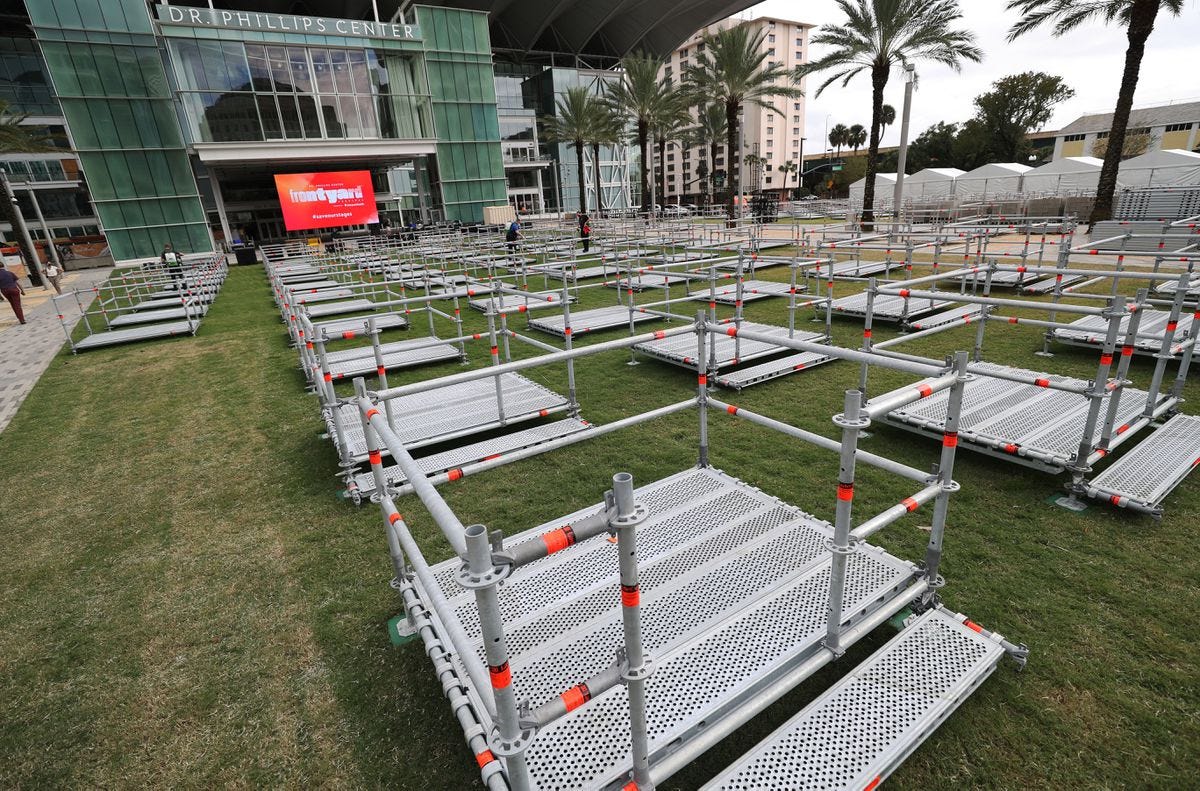
In addition to putting the album out, Michael is also going to be performing at a live, outdoor concert on December 19 at the Dr. Phillips Center in Orlando. (Buy Tickets Here) The venue has been set up with socially distanced pods for the audience and a large stage to accommodate social distancing for the performers. At this challenging time, it’s nice to see people innovate and allow live music to continue to happen in as safe a way as possible.
Michael is also both a Disney theme parks fan and a former cast member, having worked as a “fur” character in the parks. If you’re like me and are fascinated by Disney Parks stories, be sure to catch the full interview.
Michael’s album A Fierce Christmas is streaming now. He also has CDs and vinyl available for purchase. This music has already been on repeat for a little while in my house and I suspect will become a part of our holiday traditions.
What’s Coming…
On Monday, I have a really fascinating conversation with journalist Irin Carmon. She is perhaps best known for co-authoring the recent Ruth Bader Ginsburg biography, Notorious RBG. We talk about her personal connection to Justice Ginsburg, how she and her husband are navigating being new parents during the pandemic, and her role in the #MeToo movement, breaking the allegations against Charlie Rose for the Washington Post.
On Thursday, I talk with comedian Lizz Winstead, who cofounded both The Daily Show, serving as the show’s first head writer, and Air America. She has a new comedy special that was recorded outdoors in Minnesota and is a cathartic look at the end of the Trump era. We also discuss her work with Abortion Access Front, which uses humor to destigmatize abortion.
If you have questions, comments, thoughts, ideas, or anything else that you’d like to share, please feel free to email me anytime: hracela@mac.com
If you’re an Apple Podcasts user, please consider leaving a rating or review for Quarantine Creatives. It only takes a minute, but it helps bring in new listeners.
And please consider sharing this with a friend that you think might enjoy reading this, or better yet, share it on social media so you can tell hundreds of friends!
If you’ve missed past issues of this newsletter, they are available to read here.
Stay Safe!
Heath


